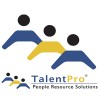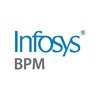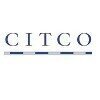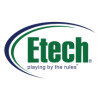Senior Associate Operations
50+ Senior Associate Operations Interview Questions and Answers

Asked in Cognizant

Q. What is Pre-Authorization?
Pre-authorization is the process of obtaining approval from an insurer or payer before receiving medical services.
It is a process of obtaining approval from an insurer or payer before receiving medical services.
It helps to ensure that the medical service is covered by the insurance plan.
It is often required for expensive or elective procedures.
It can be initiated by the healthcare provider or the patient.
Examples include pre-authorization for surgery, diagnostic tests, or pre...read more

Asked in WNS

Q. What do you know about POS?
POS stands for Point of Sale, a system used by businesses to process transactions.
POS systems are used by businesses to accept payments from customers.
They can include hardware like cash registers, barcode scanners, and card readers.
POS systems can also include software for inventory management, sales reporting, and customer relationship management.
Examples of POS systems include Square, Shopify POS, and Toast.

Asked in Carelon Global Solutions

Q. What is mortgage insurance?
Mortgage insurance is a type of insurance policy that protects a lender or investor in case the borrower defaults on their mortgage payments.
Mortgage insurance is typically required for borrowers who put down less than 20% of the home's purchase price.
There are two types of mortgage insurance: private mortgage insurance (PMI) for conventional loans and mortgage insurance premium (MIP) for FHA loans.
Mortgage insurance premiums are added to the borrower's monthly mortgage payme...read more
Asked in KPC Techno Vision

Q. What is COBRA?
COBRA is a federal law that allows employees to continue their health insurance coverage after leaving their job.
COBRA stands for Consolidated Omnibus Budget Reconciliation Act.
It applies to companies with 20 or more employees.
Employees who leave their job can continue their health insurance coverage for up to 18 months.
The employee is responsible for paying the full premium, including the portion previously paid by the employer.
COBRA also applies to dependents of the employe...read more

Asked in Talentpro

Q. How do you process payroll?
Payroll processing involves calculating employee salaries, taxes, and deductions, and issuing payments.
Collect employee time and attendance data
Calculate gross pay based on hours worked and pay rate
Deduct taxes and other withholdings
Issue payments via direct deposit or check
Maintain accurate records for tax and audit purposes

Asked in Genpact

Q. What are your salary expectations?
I expect a competitive salary that reflects my experience and the industry standards for a Senior Associate Operations role.
Research industry standards: For example, similar roles in my region typically offer between $80,000 to $100,000.
Consider my experience: With over 5 years in operations management, I bring valuable skills that justify a higher salary.
Flexibility: I am open to discussing a salary range based on the overall compensation package, including benefits and bonu...read more
Senior Associate Operations Jobs




Asked in Accenture

Q. What are collections and deductions?
Collection refers to gathering payments owed, while deduction involves subtracting amounts from total due, often for adjustments or discounts.
Collection involves obtaining payments from customers or clients for services rendered or products sold.
Example: A company collects payments from clients for consulting services provided.
Deduction refers to reducing the total amount owed, often due to discounts, returns, or adjustments.
Example: A retailer deducts a 10% discount from the...read more

Asked in Pierian Services

Q. What is the accrual concept?
Accrual concept is a method of accounting where revenues and expenses are recognized when they are earned or incurred, regardless of when payment is received or made.
Accrual accounting recognizes revenue when it is earned, not when payment is received
Expenses are recognized when they are incurred, not when payment is made
This method provides a more accurate picture of a company's financial health
Example: A company provides services in December but doesn't receive payment unti...read more
Share interview questions and help millions of jobseekers 🌟


Asked in TCS

Q. What is your expected CTC?
My expected CTC is negotiable based on the job responsibilities and market standards.
My expected CTC is based on my experience, skills, and the level of responsibility in the role.
I am open to discussing the compensation package based on the company's offer and benefits.
I have researched the market standards for similar positions to have a realistic expectation.

Asked in Boston Financial Advisory Group

Q. Details on Statutory compliance
Statutory compliance refers to the legal requirements that organizations must follow to ensure they are operating within the law.
Statutory compliance includes adhering to laws related to labor, taxes, environmental regulations, and more.
Organizations must stay up-to-date on changes to laws and regulations that may affect their operations.
Failure to comply with statutory requirements can result in legal penalties and damage to the organization's reputation.
Examples of statutor...read more

Asked in Cognizant

Q. Explain your end-to-end process.
My process involves analyzing data, identifying areas for improvement, implementing solutions, and monitoring results.
Analyze data to identify trends and areas for improvement
Develop and implement solutions to address identified issues
Monitor the results of implemented solutions to ensure effectiveness
Collaborate with cross-functional teams to drive process improvements

Asked in Infosys BPM

Q. What is a prepaid expense?
Prepaid expense is an advance payment made for goods or services that will be received in the future.
Prepaid expenses are recorded as assets on the balance sheet
They are gradually expensed over time as the goods or services are received
Examples include prepaid rent, insurance premiums, and subscriptions
Prepaid expenses are commonly used in businesses to manage cash flow

Asked in Teleperformance

Q. Explain your previous process.
Implemented and managed end-to-end processes to ensure efficiency and quality in operations.
Developed detailed process maps to visualize workflows
Established key performance indicators (KPIs) to measure process effectiveness
Regularly reviewed and updated processes to adapt to changing business needs

Asked in Tech Mahindra

Q. What is customer support?
Customer support involves assisting customers with inquiries, issues, and providing solutions to enhance their experience.
Responding to customer inquiries via phone, email, or chat.
Resolving issues related to products or services, e.g., troubleshooting a software problem.
Providing information about products, such as features and pricing.
Gathering customer feedback to improve services, like conducting surveys.
Offering technical support, such as guiding users through installati...read more

Asked in Amazon

Q. What are the different types of testing?
Different types of testing include unit testing, integration testing, system testing, and acceptance testing.
Unit testing focuses on testing individual components or functions of a software application.
Integration testing involves testing how different components work together.
System testing tests the entire system as a whole.
Acceptance testing is performed to validate if the system meets the requirements and is ready for deployment.

Asked in Citco

Q. Hedge funds vs mutual funds
Hedge funds are for high net worth individuals and have higher risk and returns. Mutual funds are for retail investors and have lower risk and returns.
Hedge funds are only available to accredited investors with high net worth and have a higher minimum investment requirement.
Hedge funds have more flexibility in their investment strategies and can use leverage and short selling to increase returns.
Mutual funds are open to retail investors and have a lower minimum investment req...read more
Asked in Nivesh

Q. What are the different types of mutual funds?
Mutual funds are investment vehicles that pool money from multiple investors to invest in a diversified portfolio of securities.
Types of mutual funds include equity funds, bond funds, money market funds, and balanced funds.
Equity funds invest in stocks, bond funds invest in bonds, money market funds invest in short-term debt securities, and balanced funds invest in a mix of stocks and bonds.
Other types of mutual funds include index funds, sector funds, and target-date funds.
Asked in eBotics

Q. What is sequestration?
Sequestration is the process of isolating or separating something from a larger group or system.
Sequestration can refer to the act of setting aside funds for a specific purpose, such as a government sequestering funds for a particular project.
In biology, sequestration can refer to the process of isolating or storing harmful substances within an organism to prevent them from causing harm.
In legal terms, sequestration can refer to the act of taking property into custody until a...read more

Asked in Loadshare Networks

Q. Warehouse operation leads
Warehouse operation leads are responsible for overseeing and managing the operations of a warehouse.
Warehouse operation leads are responsible for coordinating and supervising the activities of warehouse staff.
They ensure efficient and effective use of warehouse space and resources.
They develop and implement warehouse policies and procedures to optimize operations.
Warehouse operation leads monitor inventory levels and ensure accurate stock management.
They collaborate with othe...read more

Asked in Genpact

Q. What are CDD and EDD?
CDD stands for Customer Due Diligence and EDD stands for Enhanced Due Diligence.
CDD is a process to verify the identity of customers and assess the risks associated with them.
EDD is a more thorough investigation conducted for high-risk customers or transactions.
CDD involves collecting basic customer information and conducting risk assessments.
EDD involves gathering additional information, such as source of funds, beneficial ownership, and politically exposed persons (PEPs).

Asked in Amazon

Q. Tell me about your previous experience.
Experienced in operations management, focusing on process optimization and team leadership to enhance efficiency and productivity.
Led a team of 10 in streamlining operations, resulting in a 20% reduction in processing time.
Implemented a new inventory management system that decreased stock discrepancies by 30%.
Conducted regular training sessions for staff, improving overall team performance and morale.
Collaborated with cross-functional teams to identify bottlenecks and develop...read more

Asked in Etech Global Services

Q. What is the difference between fraud and a scam?
Fraud and scam are both forms of deception, but fraud typically involves illegal activities while scams are often based on trickery or deceit.
Fraud refers to intentional deception for personal gain, often involving financial or legal matters.
Scams are schemes designed to trick or deceive individuals or organizations for financial gain.
Fraud is typically a criminal offense, while scams may not always be illegal.
Examples of fraud include identity theft, insurance fraud, and tax...read more

Asked in MagicBricks

Q. What is your name?
The name refers to a person's identity, often tied to cultural, familial, or personal significance.
Names can reflect cultural heritage, e.g., 'Sofia' is popular in many countries.
They can have meanings, such as 'William' meaning 'resolute protector'.
Names can change over time, like a woman taking her husband's surname after marriage.
Some names are unique or rare, like 'Zephyr', which means 'west wind'.

Asked in ICICI Bank

Q. What is your current role?
Currently working as a Senior Operations Associate at XYZ Company.
Responsible for overseeing daily operations and ensuring efficiency
Collaborating with cross-functional teams to improve processes
Analyzing data and identifying areas for improvement
Training and mentoring junior team members

Asked in ICICI Bank

Q. Please provide a brief introduction about yourself.
Experienced operations professional with a strong background in process optimization and team leadership.
Over 5 years of experience in operations management, focusing on efficiency and productivity.
Led a team of 10 in a project that reduced operational costs by 20% through process improvements.
Skilled in data analysis and using metrics to drive decision-making and enhance performance.
Implemented a new inventory management system that improved stock accuracy by 30%.

Asked in WNS

Q. What is the difference between AML and KYC?
AML focuses on preventing money laundering, while KYC focuses on verifying customer identity.
AML (Anti-Money Laundering) is a set of laws and regulations designed to prevent money laundering by identifying and stopping suspicious financial activities.
KYC (Know Your Customer) is the process of verifying the identity of customers to ensure they are who they claim to be.
AML focuses on detecting and reporting suspicious activities, while KYC focuses on verifying customer identity...read more

Asked in Allstate

Q. Neurology conditions
Neurology conditions refer to disorders affecting the nervous system, including the brain, spinal cord, and nerves.
Neurology conditions can include epilepsy, Alzheimer's disease, multiple sclerosis, and Parkinson's disease.
Symptoms of neurology conditions can vary widely depending on the specific disorder.
Treatment for neurology conditions may involve medication, physical therapy, or surgery.
Neurologists are medical specialists who diagnose and treat neurology conditions.
Interview Experiences of Popular Companies






Calculate your in-hand salary
Confused about how your in-hand salary is calculated? Enter your annual salary (CTC) and get your in-hand salary


Reviews
Interviews
Salaries
Users










